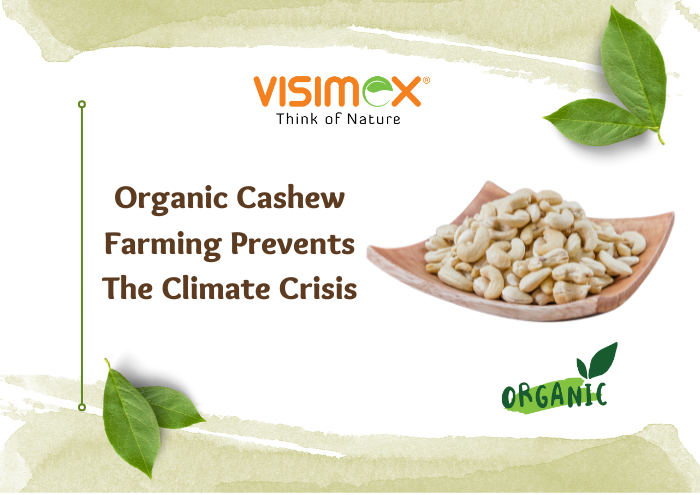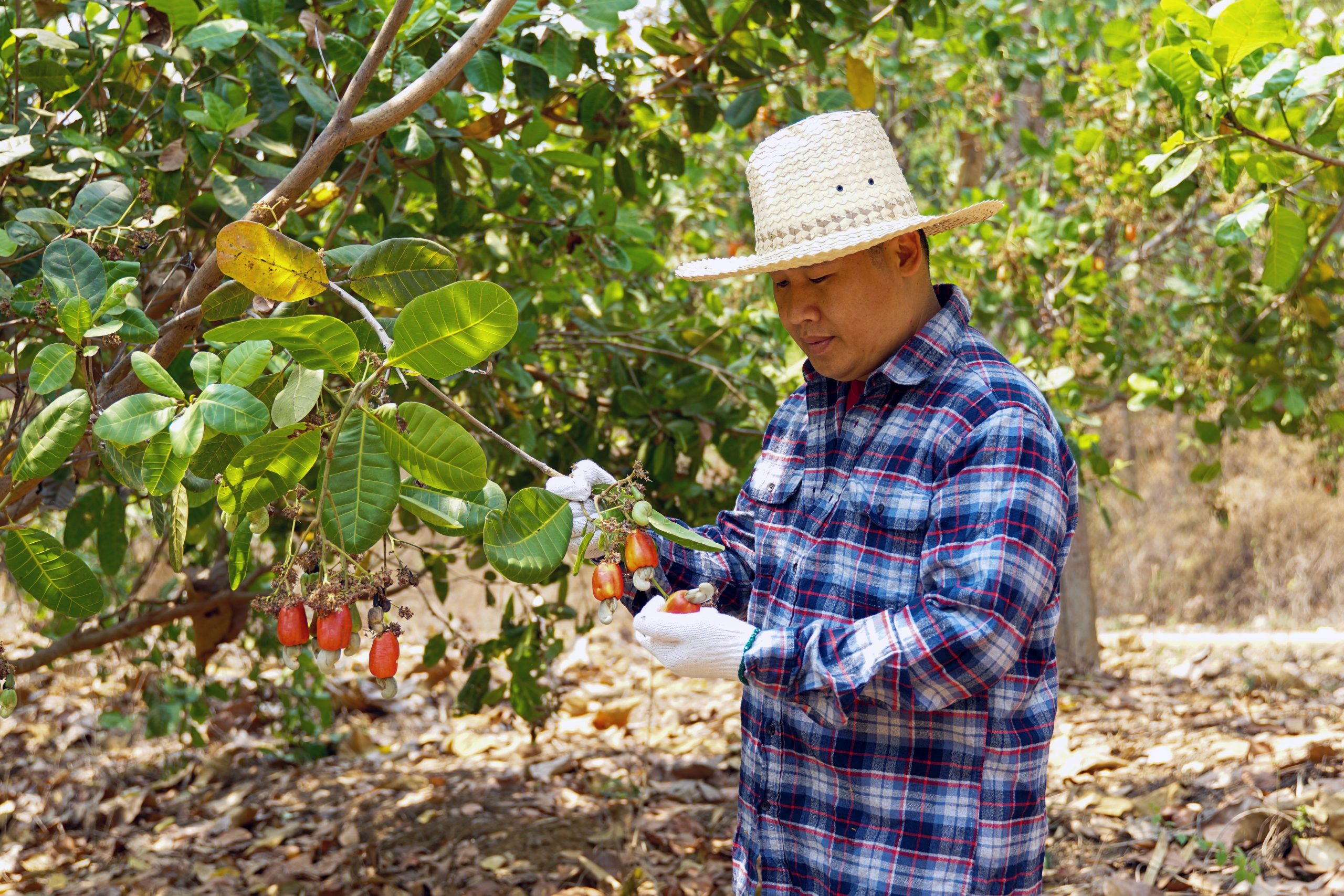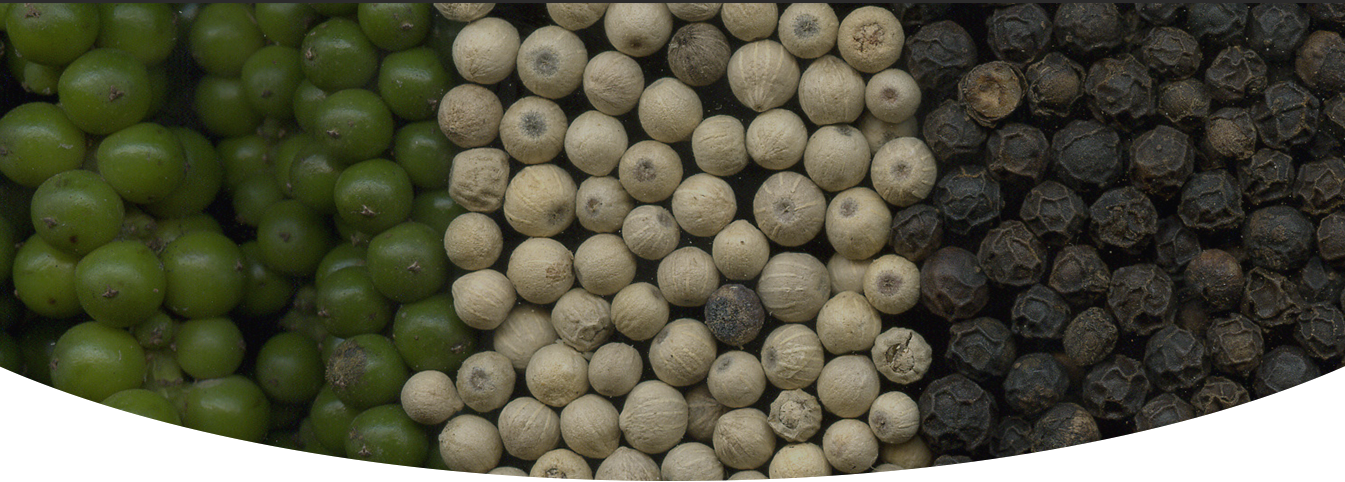In the face of the escalating climate crisis, industries worldwide are forced to reevaluate their practices and adapt to sustainable alternatives. The cashew nut industry, a vital player in global agriculture and trade, is no exception. This article delves into the extent to which organic farming practices in the cashew nut industry are equipped to deal with the challenges posed by climate change. Exploring the innovative approaches and inherent benefits of organic cultivation, we seek to understand how organic cashew farming acts as a potential solution to climate-related issues.

The Impact of Climate Change on Cashew Farming:
Climate change poses a significant threat to traditional cashew farming methods. Rising temperatures, erratic rainfall patterns, and extreme weather events can lead to decreased yields, increased susceptibility to pests and diseases, and overall diminished quality of cashew crops. As the climate crisis intensifies, it becomes imperative for the cashew industry to adopt resilient and sustainable practices that not only mitigate environmental impact but also ensure the long-term viability of cashew farming.
Organic Farming as a Climate-Resilient Approach:
Organic farming offers a promising avenue for mitigating the adverse effects of climate change on cashew cultivation. By eschewing synthetic chemicals and embracing natural, holistic farming practices, organic cashew farms enhance soil health, biodiversity, and water conservation. These practices not only contribute to the mitigation of climate change but also equip cashew trees with the resilience needed to withstand environmental stressors.
Soil Health and Carbon Sequestration:
One of the key benefits of organic farming is its focus on nurturing soil health. Through practices such as cover cropping, crop rotation, and organic matter incorporation, organic cashew farms enhance soil structure and fertility. Healthy soils act as a carbon sink, sequestering carbon dioxide from the atmosphere and contributing to the fight against climate change. The carbon sequestration potential of organic cashew farming underscores its role in mitigating greenhouse gas emissions.
Water Conservation and Sustainable Practices:
Organic cashew farming emphasises water conservation through practices like mulching and rainwater harvesting. These techniques not only reduce the industry’s water footprint but also help cashew trees adapt to changing precipitation patterns. By promoting sustainable water management, organic farming plays a crucial role in ensuring the continued productivity of cashew orchards in the face of climate-induced water scarcity.

Biodiversity Preservation:
The biodiversity-rich approach of organic farming contributes to the resilience of cashew ecosystems. Diverse plantings provide habitat for beneficial insects, pollinators, and other organisms that play a vital role in pest control and overall ecosystem health. The preservation of biodiversity in organic cashew farms enhances the industry’s ability to adapt to unforeseen challenges brought about by climate change.
As the global community grapples with the multifaceted challenges of the climate crisis, the organic cashew farming industry emerges as a beacon of resilience and sustainability. Through its emphasis on soil health, water conservation, and biodiversity preservation, organic farming not only mitigates the impact of climate change but also positions the cashew industry for long-term success. Embracing organic practices is not merely an eco-friendly choice; it is a strategic and necessary step towards building a climate-resilient future for the cashew nut industry.
In the pursuit of climate-resilient agriculture, organic cashew farming emerges as a beacon of sustainability, and at the forefront of this movement is Visimex. As a pioneer in organic agriculture in Vietnam, Visimex boasts over 20 years of experience exporting Vietnamese agricultural products globally. The company’s commitment to organic practices aligns seamlessly with the principles of climate-conscious farming discussed in this article.
Visimex has been a trailblazer in implementing sustainable and eco-friendly methods within its cashew farming operations. By championing organic agriculture, Visimex not only ensures the premium quality of its cashew products but also actively contributes to mitigating the environmental impact of the cashew industry. The company’s dedication to soil health, water conservation, and biodiversity preservation exemplifies its role as a leader in fostering climate-resilient practices.
In line with its commitment to sustainability, Visimex proudly announces its continued participation in the Biofach Food Exhibition 2024. By showcasing its latest developments and innovative approaches to organic cashew farming, Visimex aims to contribute to the global dialogue on climate-resilient agriculture. Visitors to the exhibition can engage with Visimex representatives to learn more about the company’s sustainable initiatives and how organic farming can be a transformative force in the fight against climate change. Join Visimex at Biofach 2024, and together let’s pave the way for a more sustainable and climate-resilient future in the cashew nut industry.











